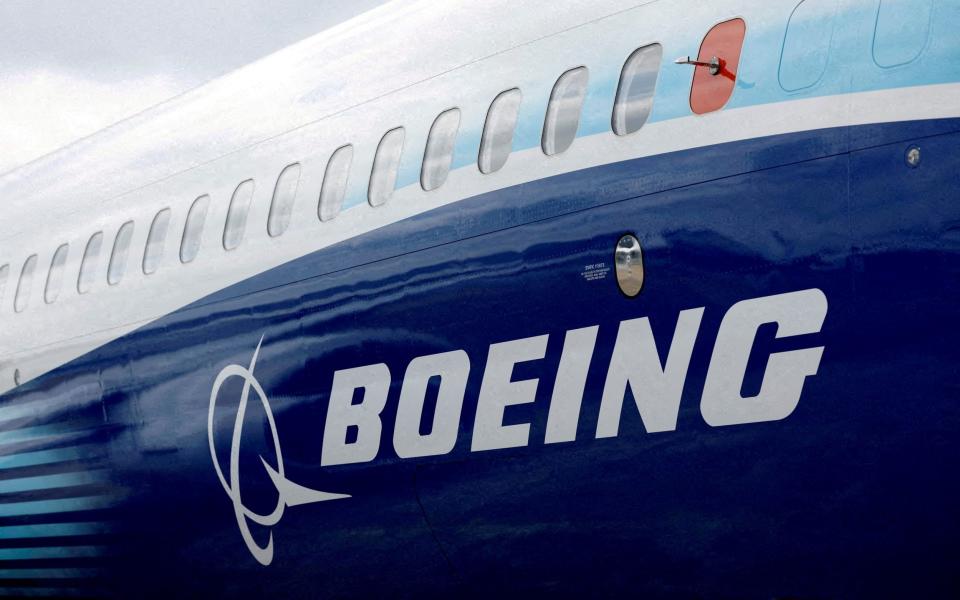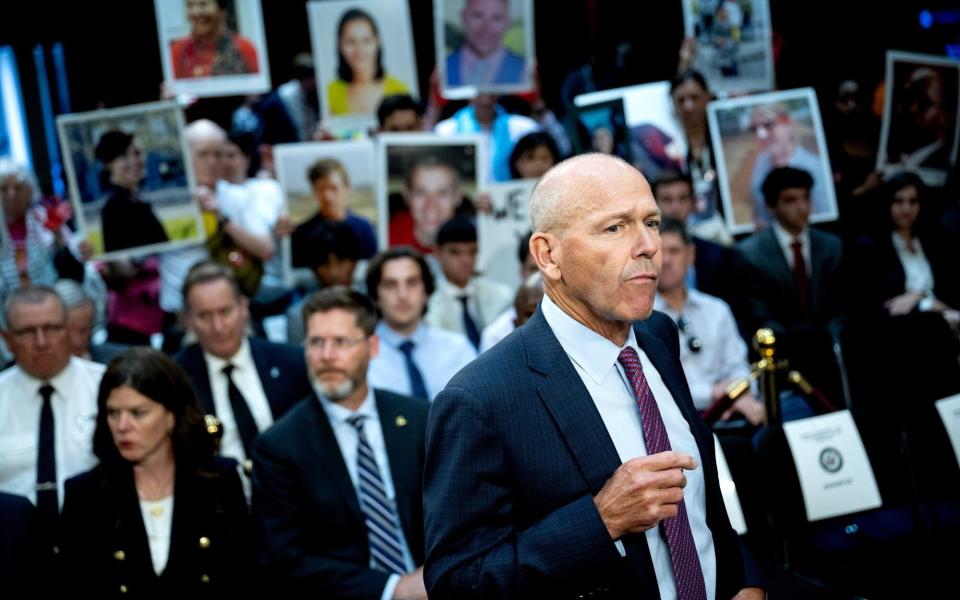Boeing staff demand 40pc pay rise amid 737 Max crisis

Boeing’s biggest union is demanding a record 40pc pay rise for 32,000 staff as it seeks to exploit the 737 Max crisis.
The International Association of Machinists and Aerospace Workers, which represents Boeing machinists in Seattle, is demanding the pay rise as part of a deal to secure work for the next 50 years as the company reels from a string of safety and production scandals.
The union is also seeking a guarantee that a new narrow-body plane will be built in Seattle, forestalling any bid to cut costs by shifting production elsewhere.
Jon Holden, president of the union’s District 751 branch, said: “We have a lot of leverage right now and we are going to use it. We are going to push them further than they ever would think they are going to go on wages and job security.”
The union is lobbying for higher wages and a guarantee of future work amid intense scrutiny of Boeing’s factories, following a string of safety and production problems. The company has been under intense pressure since the door of a 737 Max 9 jet blew out mid-flight in January.

Earlier this month, Boeing’s outgoing boss, Dave Calhoun, delivered a faltering defence of Boeing’s revised approach to training, quality control and issues with its supplier base during a grilling by the US Senate.
Contract negotiations with the machinists union began in March and are expected to go on until September, when the existing 10-year agreement runs out.
Mr Holden said the chance to force Boeing’s hand on a new jet while it is assailed by regulators, federal lawmakers and the media was too good to pass up.
The union admitted that guarantees on production are not normally part of wage negotiation, but said staff have not had a new contract for 15 years and are habitually forced into accepting poor deals by the threat of losing production work entirely.
The last comprehensive pay deal was agreed in 2008 and was meant to span four years, he said. Before the deal ended, however, Boeing sought an extension in return for keeping the newly launched 737 Max in Seattle.
The company repeated the tactic in 2013 by demanding a further extension of terms when it came to launching the 777X widebody, leading to 10 years of stagnating wages, Mr Holden said.
Boeing said it does not comment on pay negotiations.
Mr Holden said the company is seeking to neutralise Boeing’s ability to force through minimal pay increases with the threat that production lines could be moved to other parts of the US or even abroad every time it comes to launching a new plane.

The union is now seeking a three or four-year agreement containing an explicit guarantee that any new plane launched in that time – most likely a narrow-body to replace the Max or a so-called mid-market jet seating 250 – would be built in Seattle and the Puget Sound area.
Mr Holden said: “We want to ensure that we can never again be hit mid-contract with threats to take away our livelihoods. If we can secure work for the next 50 years, which is the lifetime of an aircraft programme, we’d be helping everyone, not just our members and those that follow them but engineers, management and the whole supply chain.”
Boeing has said that it expects its next new aircraft to enter the market in about 2035, succeeding the Max and competing with Airbus’s A320neo.
Mr Holden said that the lengthy scrutiny the model would inevitably face from regulators meant that it would need to be launched in the next year or two.
Workers are expected to vote next month on granting the union a strike mandate, though walkouts won’t be possible until the current deal expires.
Boeing suffered a new blow after prosecutors recently decided the company should face criminal charges for violating a settlement over two fatal crashes involving the Max that killed 346 people and resulted in the longest grounding of a commercial jet in US history.

 Yahoo Finance
Yahoo Finance 